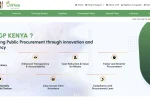The Persons With Disabilities Bill, now awaiting the President’s assent after sailing through Parliament, marks a significant shift in the country’s legislative and policy approach to the rights and inclusion of people living with disabilities.
The Bill seeks to replace the Persons with Disabilities Act of 2003, aligning Kenya’s laws with the Constitution of Kenya 2010 and the United Nations Convention on the Rights of Persons with Disabilities (UNCRPD), which Kenya ratified in 2008.
But beyond its progressive tone and promises, how transformative is this legislation, sponsored by nominated Senator Crystal Asige, likely to be?
From Welfare to Rights-Based Approach
One of the most notable aspects of the new Bill is its framing of disability issues as a matter of rights rather than charity.
The 2003 law, though a major step at the time, largely approached disability from a welfare lens.
In contrast, the current Bill adopts a rights-based perspective, demanding equal access, non-discrimination, and the removal of barriers that prevent full participation of persons with disabilities (PWDs) in society.
This shift mirrors the constitutional gains of 2010, which for the first time entrenched disability rights in the supreme law of the land. Article 54 of the Constitution recognizes the right of PWDs to be treated with dignity, access educational institutions, reasonable access to public places, and access to materials and devices to overcome constraints.
The proposed Bill seeks to translate these constitutional promises into enforceable law.
Key Provisions
The Bill introduces several critical provisions:
Accessibility and Reasonable Accommodation: It mandates both public and private entities to ensure physical, digital, and informational accessibility, including buildings, transport systems, and online services. It also requires “reasonable accommodation” in workplaces, schools, and public institutions.
Anti-Discrimination Measures: Discrimination against PWDs in employment, education, healthcare, and public services is expressly prohibited. The Bill imposes penalties for non-compliance, signaling a tougher stance on enforcement.
National Disability Development Fund: The Bill proposes a more robust and accountable framework for financing disability programs. This includes the establishment of a Disability Development Fund, aimed at empowering PWDs economically through access to credit, business support, and vocational training.
Affirmative Action: It strengthens affirmative action in public appointments, education scholarships, and political participation, building on the framework already provided by the Constitution and various statutes.
Inclusive Education: The Bill proposes the integration of learners with disabilities into mainstream education, with support systems such as sign language interpretation, Braille, assistive technology, and specialized teacher training.
Data and Statistics: It obligates the government to collect disaggregated data on PWDs to inform policy and planning—something long demanded by advocates who argue that the invisibility of PWDs in official statistics undermines effective intervention.
Implementation: The Achilles’ Heel?
As promising as the Bill may seem, implementation remains a critical concern.
Kenya has a long history of passing progressive laws that stall at the execution stage due to weak political will, limited funding, or lack of institutional capacity.
The National Council for Persons with Disabilities (NCPWD), which the Bill proposes to restructure, has often been criticized for bureaucratic inefficiency and limited outreach.
A strong and well-resourced Council, along with independent monitoring mechanisms, will be crucial. The Bill’s success will also depend on collaboration across government agencies, counties, and civil society.
Political and Social Context
The Bill comes at a time when disability rights are gaining more prominence in the national discourse.
Politicians have increasingly sought visibility among disability groups, especially during elections, but the community remains vastly underrepresented in decision-making.
The passage and implementation of this Bill could elevate the disability agenda and shift it from tokenism to genuine inclusion.
Moreover, the Bill could serve as a litmus test for Kenya’s commitment to inclusivity under the Bottom-Up Economic Transformation Agenda (BETA), which promises to uplift marginalized communities.
The Persons With Disabilities Bill is an ambitious and much-needed reform. It offers Kenya a real opportunity to reimagine disability inclusion beyond compliance and charity, and toward empowerment and full citizenship.
But its promise will only be realized if backed by adequate funding, strong institutional leadership, political will, and active participation from the disability community itself.












